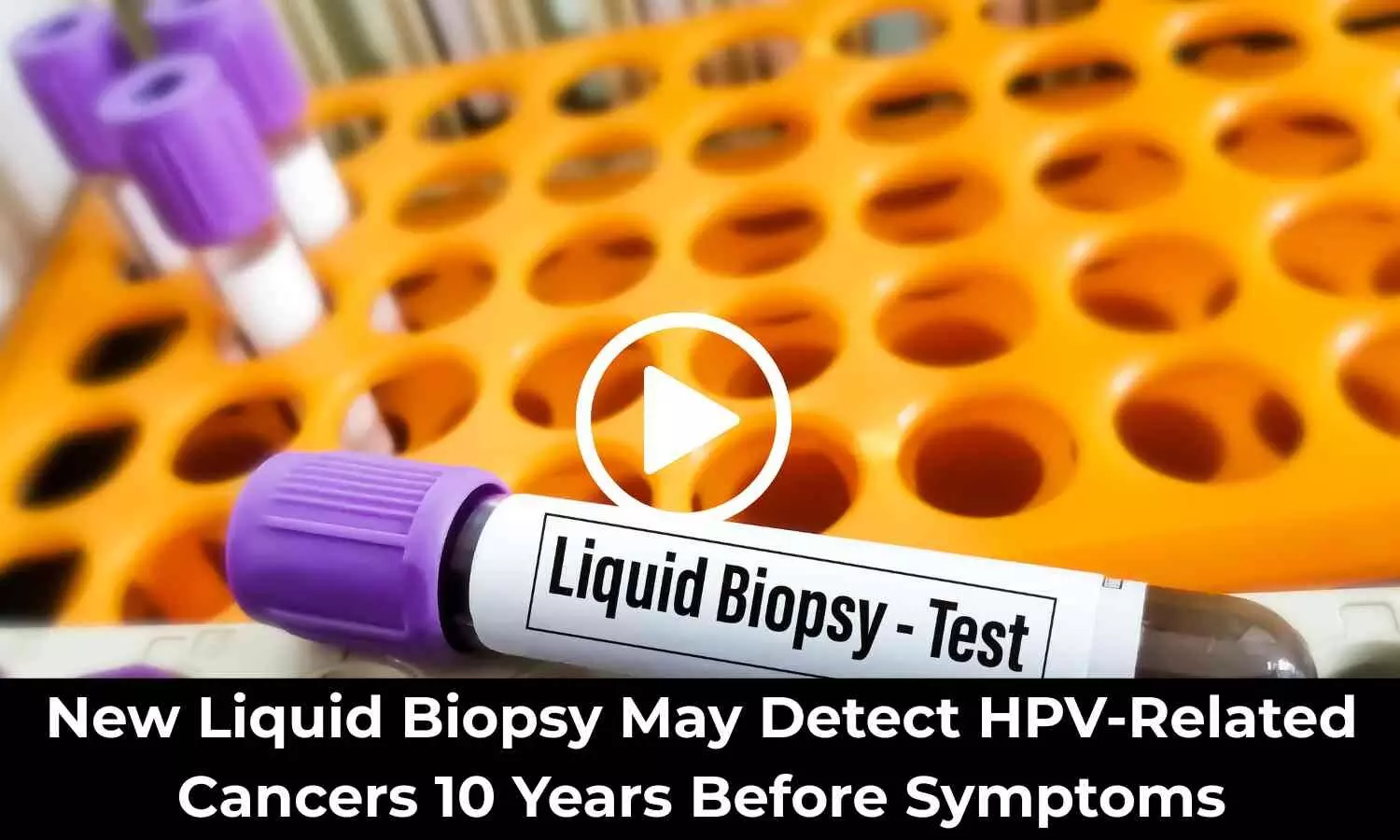New Liquid Biopsy May Detect HPV-Related Cancers 10 Years Before Symptoms: Study Finds
- byDoctor News Daily Team
- 13 September, 2025
- 0 Comments
- 0 Mins

A recent study published in theJournal of the National Cancer Institutereveals that a new blood test developed by researchers at Mass General Brigham can detect HPV-associated head and neck cancers up to a decade before symptoms appear. The study introduces a novel liquid biopsy tool, HPV-DeepSeek, which could improve early detection and significantly improve outcomes for patients. Unlike HPV-relatedcervical cancer, there is currently no screening test for head and neck cancers, which means most diagnoses occur only after thetumorhas grown large enough to cause symptoms and spread. To address this gap, researchers led by Dr. Daniel L. Faden, head and neck surgical oncologist at Mass Eye and Ear, developed HPV-DeepSeek, a tool that uses whole-genome sequencing to identify trace fragments of HPVDNAshed into the bloodstream by early-stage tumors. The team tested 56 blood samples from the Mass General Brigham Biobank — 28 from individuals who developed HPV-related head and neck cancer years later and 28 from healthy controls. HPV-DeepSeek detected tumor DNA in 22 of the 28 pre-diagnosis samples, with zero false positives among controls. Using machine learning, the test's accuracy improved further, identifying 27 of 28 future cancer cases, including samples collected up to 10 years before diagnosis. “Our study shows for the first time that we can accurately detect HPV-associated cancers in asymptomatic individuals many years before they are ever diagnosed with cancer,” said Dr. Faden. “We hope tools like HPV-DeepSeek will allow us to catch these cancers at their very earliest stages, which ultimately can improve patient outcomes and quality of life.” These findings highlight the promise of HPV-DeepSeek as a future screening tool, potentially enabling earlier, less invasive treatment for thousands of at-risk individuals. Reference:Das, D., et al. (2025). Circulating tumor human papillomavirus DNA whole genome sequencing enables human papillomavirus-associated oropharynx cancer early detection. JNCI: Journal of the National Cancer Institute. doi.org/10.1093/jnci/djaf249
Disclaimer: This website is designed for healthcare professionals and serves solely for informational purposes.
The content provided should not be interpreted as medical advice, diagnosis, treatment recommendations, prescriptions, or endorsements of specific medical practices. It is not a replacement for professional medical consultation or the expertise of a licensed healthcare provider.
Given the ever-evolving nature of medical science, we strive to keep our information accurate and up to date. However, we do not guarantee the completeness or accuracy of the content.
If you come across any inconsistencies, please reach out to us at
admin@doctornewsdaily.com.
We do not support or endorse medical opinions, treatments, or recommendations that contradict the advice of qualified healthcare professionals.
By using this website, you agree to our
Terms of Use,
Privacy Policy, and
Advertisement Policy.
For further details, please review our
Full Disclaimer.
Recent News
What Your Neck Size Says About Your Heart Health?...
- 04 November, 2025
EVOQUE TTVR Delivers Promising Real-World Results:...
- 04 November, 2025
Influenza Vaccination Reduces Mortality and Readmi...
- 04 November, 2025
Daily Newsletter
Get all the top stories from Blogs to keep track.


0 Comments
Post a comment
No comments yet. Be the first to comment!